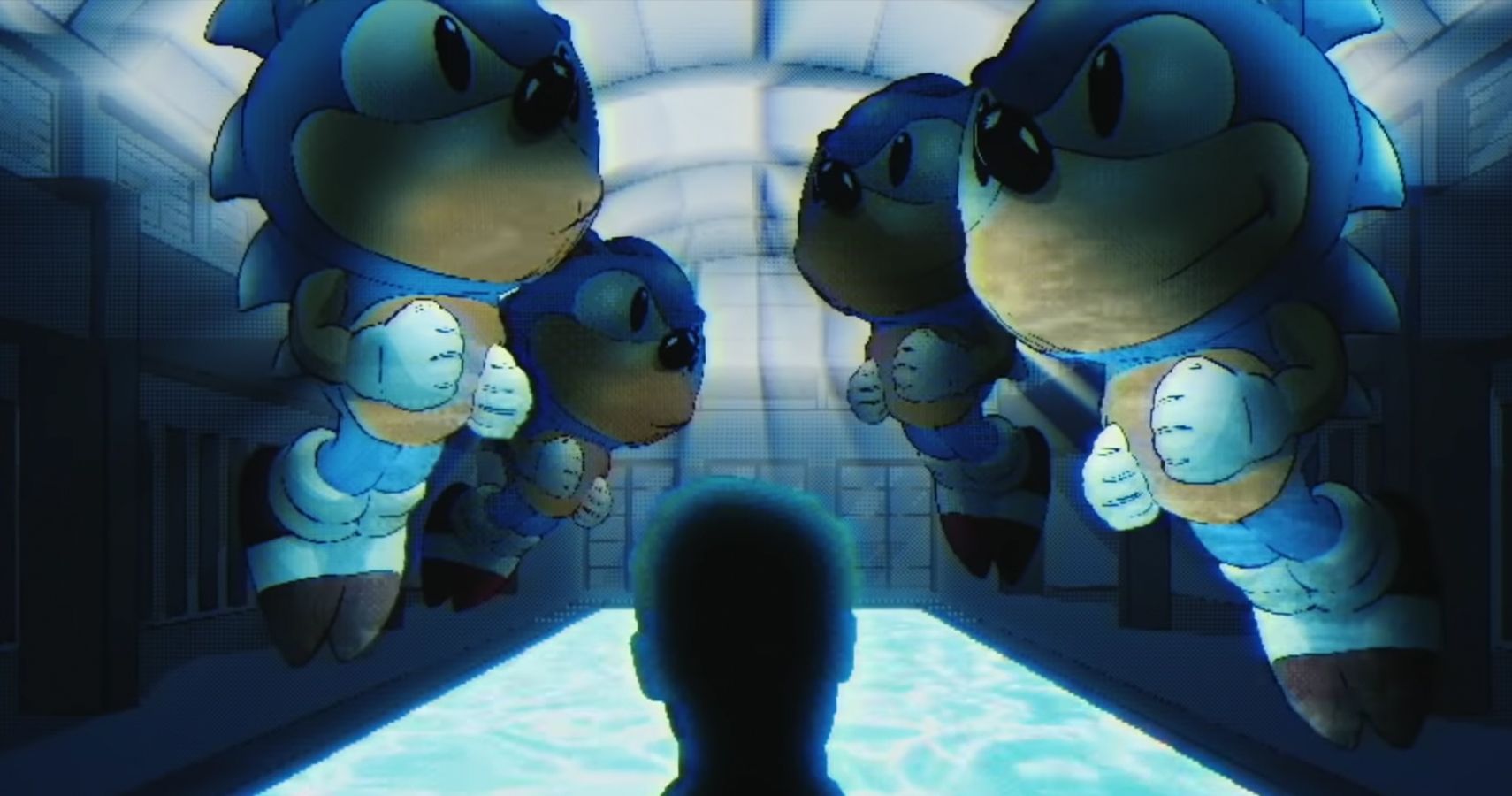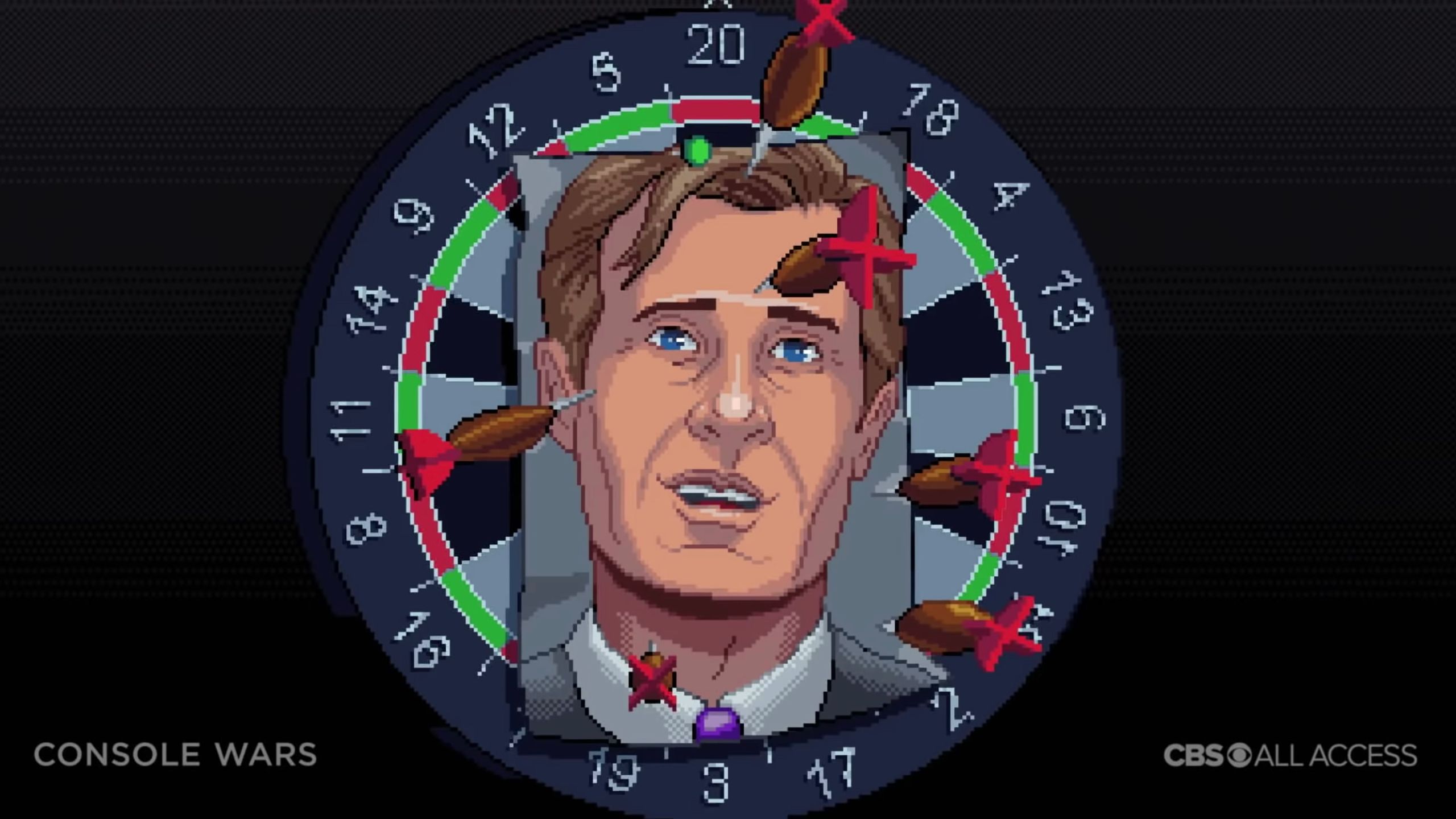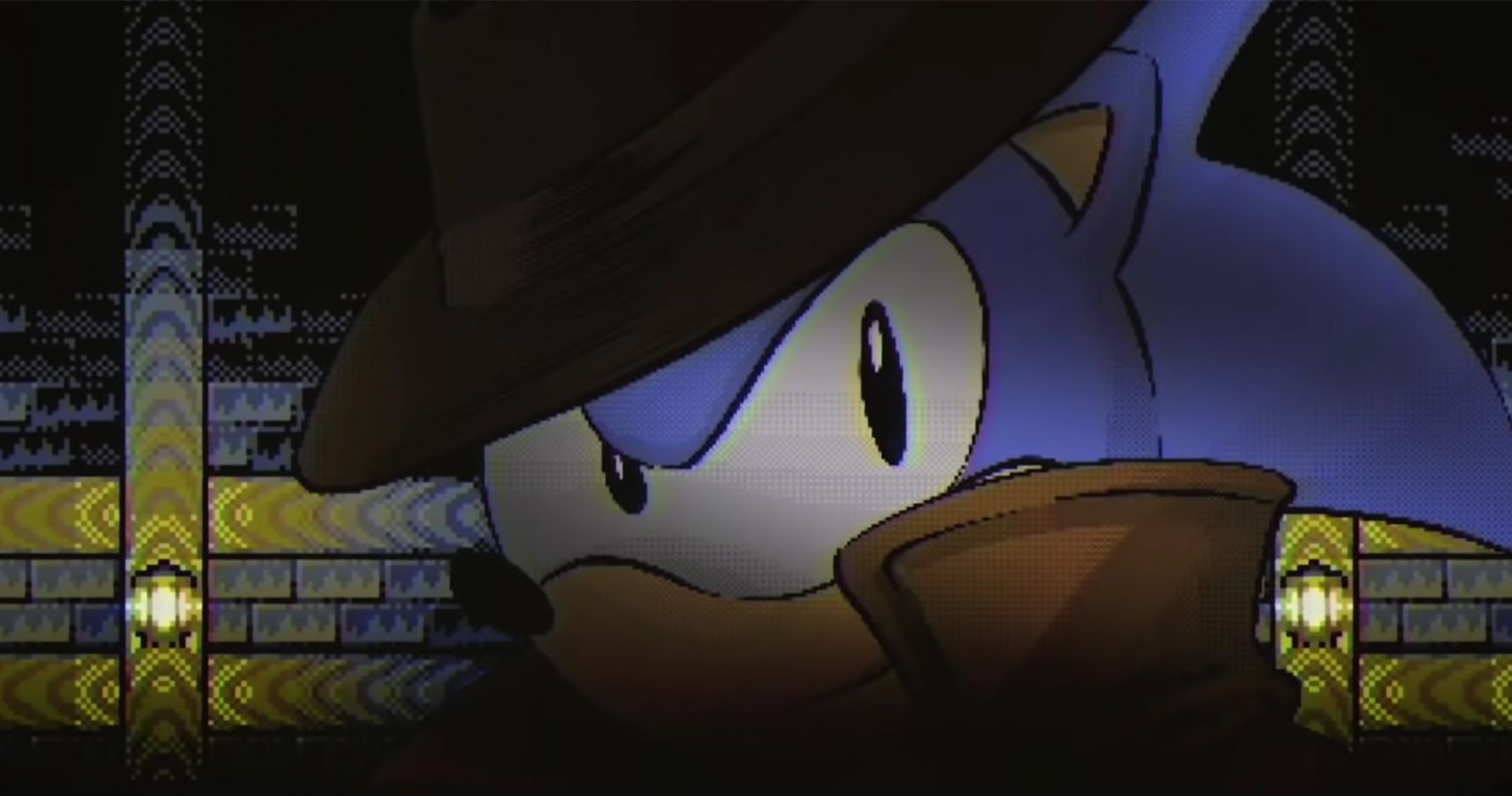Console Wars, a documentary covering the epic feud between Sega and Nintendo that would transform the future of video games, recently debuted via the CBS All Access streaming service. The product of more than eight years of work, filmmakers Jonah Tulis and Blake J. Harris spoke to TheGamer about their approach to the documentary, their push to get Seth Rogen on board on as a producer and what they learned in the process of making the film.
TheGamer: What was it about the console wars that drew you to the story and ignited the idea that it would make a great documentary?
Blake J. Harris: We love real-life stories. Before I wrote Console Wars or we even thought about the documentary, I just wanted to read about the console wars or watch something about the console wars. I was shocked that there was no such thing.
Jonah Tulis: I remember him telling me about the team at Sega... You have [former Sega of America President and CEO] Tom Kalinske, who came from Mattel. He left on not the best terms and he had something to prove. You have Al Nilsen, the gamer. You have Paul Rioux, the ex-Vietnam vet, tough as nails and running the company like you're at war. You have [Sega's former Director of Marketing Services] Ellen Beth van Buskirk. And of course, [former Executive Vice President and COO of Sega of America] Shinobu Toyoda, who's really one of the best characters in the film by far once you really get in.
BJT: You'll take great comfort in Shinobu.
JT: And then we had this crazy idea. Let's try to get a book going. Let's try to get a doc going. And let's try to get a feature film a la The Social Network going. If one of them works out, we're gold. We had a relationship with Seth Rogen. We said, "He's a big gamer, let's try to get him involved. He could be an EP on the doc and help us raise money." We end up with Seth Rogen, Evan Goldberg, and James Weaver, we have a two-hour meeting. They wanted to do all of them. This was a one-day turnaround when they told us this, which is very rare in our business.
BJH: It's a great business story, this David-and-Goliath story of going from 5% of the market to 55%, which is amazing. But our interest was always more in the human character side. Like Jonah said, Tom Kalinske is at a midpoint in his life and wondering if the best years are behind him. And then doing this thing that everyone thought was impossible. Nintendo was so dominant that it had become synonymous with video games, the same way that Kleenex is with tissues, or jacuzzi is with hot tubs. And then here you had this guy trying to come in saying. "Oh, no, actually, there's room for one more."
TG: How did you go about collecting the archival footage?
JT: When Blake started interviewing people, he ended up talking to over 200 people. We had to really narrow it down because we wanted it to be about these characters who were in the middle of it. With the archival, it helps that we had such a network of people who had videotapes, had presentations, had photos, had everything you could possibly think of.
BJH: One of the best decisions that I've ever made was to spend $100 buying a VHS-to-DVD converter. We'd be meeting with these bigwigs, people like [former Nintendo of America chairman] Howard Lincoln and [former Nintendo of America Executive Vice President of Sales and Marketing] Peter Main and Tom Kalinske. And they have all these VHS tapes somewhere in their attic or basement. And I basically said, "Hey, if you give Jonah and I your VHS tapes, we'll digitize it for you so you have a digital copy, and then we'll also get it as well.” So they thought we were doing them a favor. But for us, it was the greatest deal of all because that was some of the best archival footage.
TG: What are the big differences between the documentary and the book?
BJH: Condensing a 500-page book to 90 minutes, there are a lot of changes. But one thing after doing the book — and also, that we were able to develop because we got such great archival footage from the get-go with the Nintendo — was telling more of the Nintendo story. Although Tom Kalinske is the lead character in the documentary for the most part, this is much more of a balanced look at Sega vs. Nintendo. Objectively speaking, neither of them were the hero or the villain. They both thought they were the heroes, but really, they both were just companies with different philosophies.
JT: The thing that made us really excited about the doc, even more so than the series and the book, is the fact that we could use all this archival footage. You could see these commercials. You could see these guys in their element. And you could hear it from their own voices.
TG: How did your understanding of the console wars change as you went from having written the book, which was published in 2015, to compiling the documentary?
BJH: We started working on the documentary in parallel with when I was working on the book. Jonah and I wanted the documentary to, in a sense, replicate our experience researching this. It starts off with how most people our age think about Nintendo. It's this happy company that was part of merry Christmases and Hanukkahs and birthdays. Then, hearing it from the business standpoint, they were ruthless. They were not fun to work with, regardless of their success.
JT: Admittedly so as well.
BJH: And then giving them the benefit of the doubt and saying, okay, they were Goliath, they were the juggernaut. But were they jerks? And then getting to learn they were tough, and they were stern, but they had reasons for it. It wasn't a revelation that came after the book, but it was something that we could do with the documentary much better and effectively than with the book.
JT: We took special care to be like, okay, when are we going to reveal who Nintendo was and why they were this way? That was probably the hardest thing we did, but also the most rewarding.
BJH: Part of the joy of making a documentary or telling any story is that even as much as you know going in, you're going to be surprised by what you find. Amongst the two of us, one of our biggest realizations and most enjoyable ones was how petty the feud still is between both companies. They really do not like each other. And that was [laughs] interesting, and certainly fun for us to be in the middle of this high school reunion where they still have this petty rivalry.
TG: The dead Sonic story really got me. I was impressed you could even parse those kinds of stories out of people.
JT: Dead Sonic reminds me of another one we had to cut that was really good. During E3, [PlayStation executive] Steve Race printed out 5000 copies of the invite to Sega's E3 party event. And then he passed them around all over downtown LA to random people.
BJH: In the book, it's a lot easier to list off and build. But in the documentary, it feels repetitive. And the story is so wonderful as told, especially with how Steve kind of denies it.
TG: What can this teach us about the modern console wars between PlayStation and Microsoft?
BJH: People have asked us, could there be another Sega? I'd love to say yes, but the idea of a small hardware company having the money to compete is unlikely. But you still can learn a lot from that small-company, nimble mentality. In particular, I think that what Sega did so well, fundamentally different than Nintendo, was to find out what their customers wanted and deliver that to them. That feels a little lost in the gaming industry nowadays.
JT: Obviously, there were more stakes because if Sega didn't succeed, it would have gone out of business. Whereas if Sony and Microsoft do, it's a small piece of their — I mean, a big small piece — but a small piece of their business. And these console wars are less these guys going after each other and more the fans going after each other.
BJH: Nowadays, the companies aren't looking to have a battle. But Jonah and I are both fans of Console War-esque battles. Certainly, never being rude or nasty to other fans or to other companies, and even puncturing their balloons. But we love that competition. It directly led to so many great innovations, to such cheaper prices, to great games and to happier consumers.
TG: In terms of who won the console wars, it's really the consumer, right?
BJH: It's always mystifying to me when I see the consumer saying, "I hate console wars!” “I don't like console wars!” Maybe they just really hate my book. [Laughing.]
JT: I went on Twitter the other day, I searched for "console wars," and most of it is people like, "Screw the console wars! Console wars are dumb!" They're not talking about us, they're talking about what's going on right now.
BJH: I understand there's a lot of streaming options today. You should get CBS All Access, because they have great content. And there's Netflix and Amazon Prime and HBO Max, and a lot of these options. But even if that's frustrating, that is also directly what's leading to peak television. That money is creating better content, it's forcing competition.
JT: I’m curious about the relationship between Sony and Xbox and their international counterparts. Specifically Sony. That was another console war within our movie, Sega of America vs. Sega of Japan, which is probably potentially the most critical console war in our movie based on how things turned out.
TG: What can you share about the current status of the limited series?
JT: At the moment, we have an amazing script that we all love from Mike Rosolio, a great Hollywood writer. Jordan Vogt-Roberts is currently set to direct the pilot. We're hoping to get going on it soon, and we'll see what happens.
Console Wars is now available to view via the CBS All Access streaming service.



